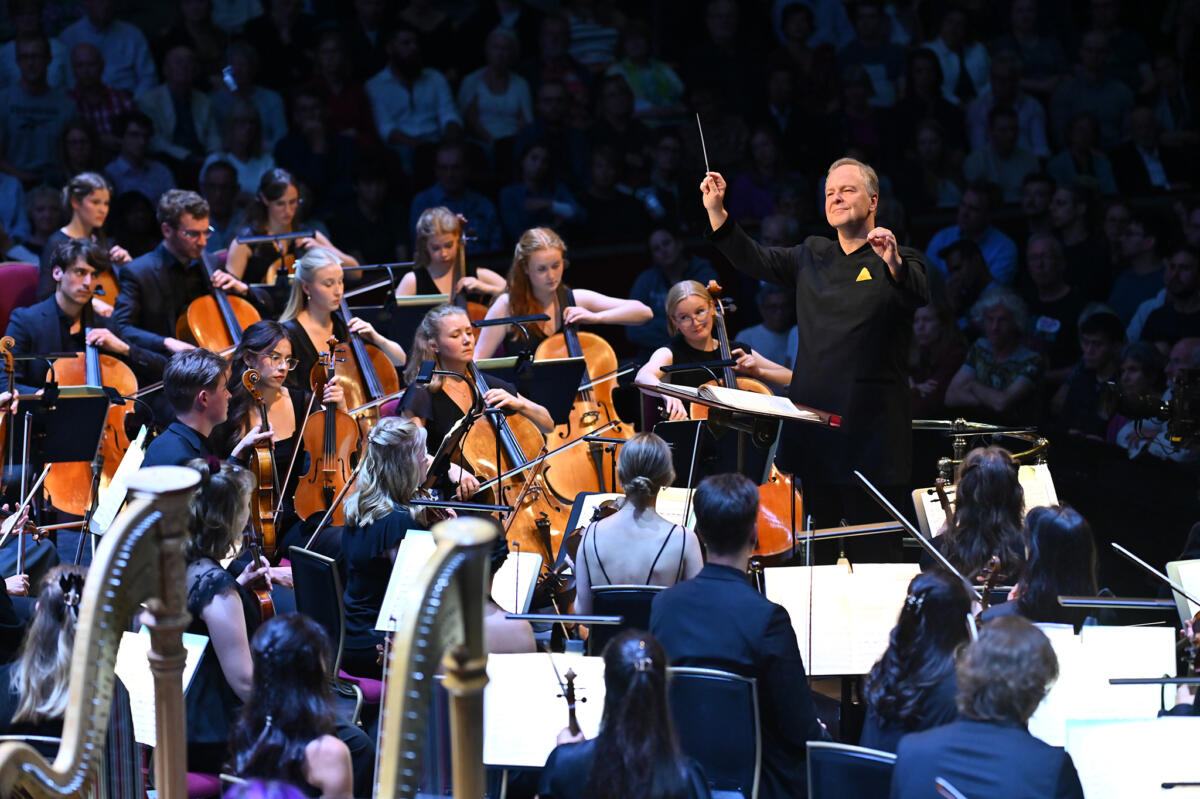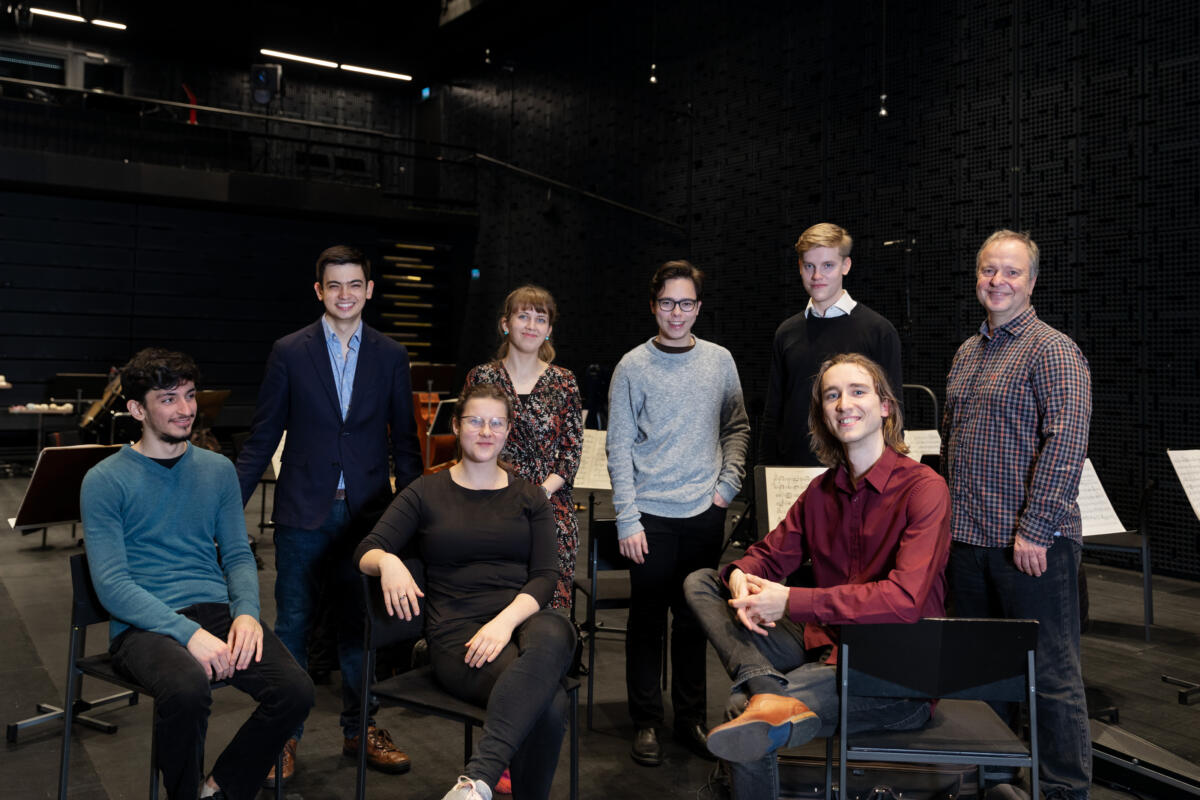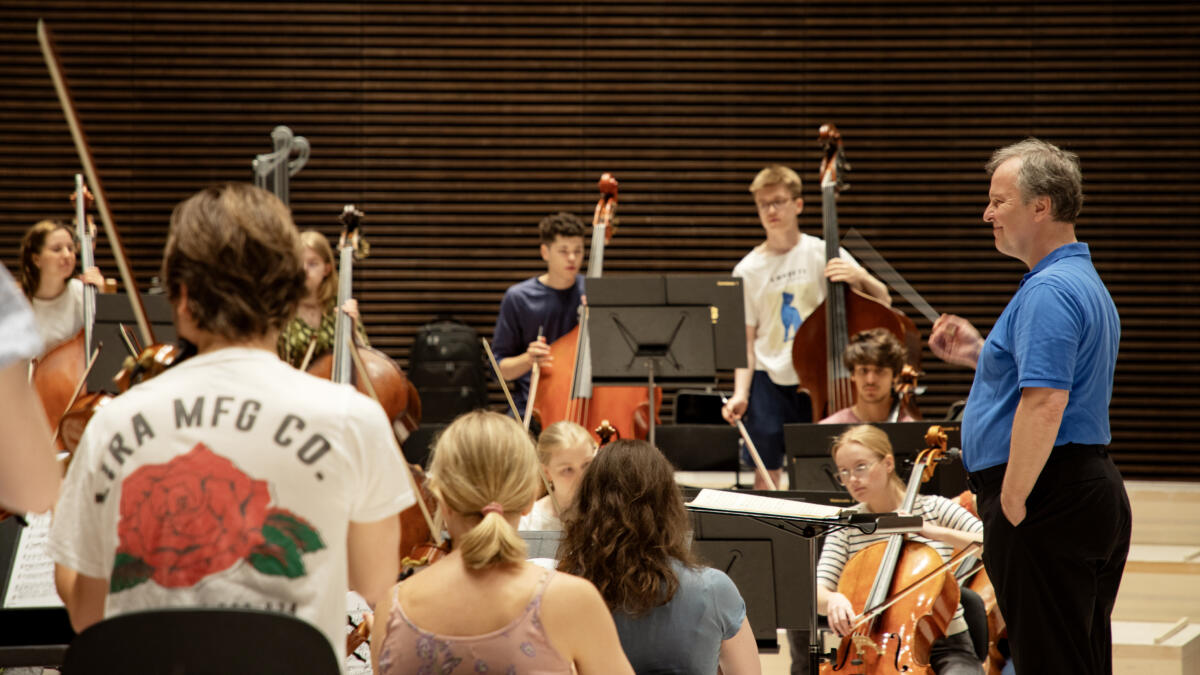Conductor Sakari Oramo: Diverse orchestral activities are the foundation of quality music education
Conductor Sakari Oramo began his fifth and final year as Professor of Orchestral Conducting at the Sibelius Academy of Uniarts Helsinki in August. Oramo believes that a comprehensive symphony orchestra programme is essential to maintaining high educational standards. He expects conducting students to demonstrate both vision and courage in expressing their ideas within the student community.

The biggest and most significant development in conducting education in recent years, according to Oramo, has been consolidating collaboration with professional orchestras. Oramo has increased both the quantity and quality of orchestral collaborations.
“Students have been able to work with an orchestra throughout the entire process, from rehearsals to the concert. At the beginning of next year, collaborations with both the Helsinki Philharmonic Orchestra and Sinfonia Lahti will take place during the same week.”
As a teacher, Oramo describes himself as more student-centred than system-centred and emphasises that each student must be treated as an individual.
“I have aimed to raise the standards. The challenges vary. One student may have strong physical abilities but weaker theoretical skills, or vice versa – and everything in between,” he explains.
The class size has been up to ten students, including both bachelor’s and master’s students.
“The class size shouldn’t grow too large, so that everyone receives enough personal guidance. The fact that some are already working in the field has alleviated the situation. They have many gigs and are absent from classes. Naturally, we have done joint reflections after these opportunities,” Oramo says.
Empowering students to act without the professor’s lead
In Oramo’s view, it is important for conducting students to understand their place within the student community, both as equal colleagues and as leaders and authorities in front of the student orchestra. Taking on this role requires courage.
“In recent years, I have also emphasised student initiative. Not everything needs to wait for the professor’s command; a collective spirit has emerged. I provide the repertoire, but students have a larger role in how it is realised with the rehearsal orchestra. This is also necessary in professional life,” Oramo reminds.
He has also encouraged students to think big.
“Finland is not the market we are training conductors for, but orchestras worldwide. There are not enough jobs for all graduates in Finland, but on the other hand, a high level is achieved through a certain critical mass. Some are snatched up by top orchestras early in their training.”

Orchestral variety is key to educational quality
In addition to conducting education, Oramo’s part-time (50%) professorship includes developing the academy’s orchestral activities, in other words, the Sibelius Academy Symphony Orchestra.
Oramo underlines the quantity and quality of orchestral activities as a central foundation of higher music education.
“If the critical mass of orchestral activities is not met both in terms of quantity and quality, the entire education loses its foundation. For the student’s development and workload, three to four symphony orchestra productions a year is a good amount, in front of an audience, in a large concert hall and with sufficient stylistic diversity,” Oramo says.
“Not all concerts need to be large-scale. We can also perform with smaller ensembles, which reduces the workload in sections with fewer students.”
Oramo also stresses the importance of students preparing for and committing to symphony orchestra productions, so they can be carried out entirely by students, without the help of professionals.
“Life easily centres around solo work and competitions. The ideal would be that the symphony orchestra parts are studied with one’s own teacher,” he says.
“General musician skills are very important, even if one ends up as a soloist or opera star. A musician with good general skills will fare better in the profession.”
A conductor praised by students
As head of the academy’s orchestral activities, Oramo regularly conducts the Sibelius Academy Symphony Orchestra, with the most recent being sold-out concerts at the BBC Proms Festival and the Helsinki Festival in collaboration with the Royal College of Music, which is regarded as the best music school in the world.
As a conductor, he consistently receives positive feedback from students who appreciate the good atmosphere as well as clear and friendly communication. According to students, Oramo knows how to motivate efficient work and encourage them to do their best.
“I approach musicians in the student orchestra as I would any other professional musicians; I expect the same from them. I encourage musicians to boldly offer material rather than avoid mistakes. With that material, I can work, and results will follow,” Oramo says.
He also applauds the students’ initiative in ensuring that the orchestra’s rehearsal period is usually condensed into one week, matching the practices of professionals in the field.
Many of Oramo’s colleagues are also happy to conduct the academy’s symphony orchestra, building connections with the next generation of musicians.
“It’s great to meet the new generation, they are an open-minded group. The students are very motivated, and the level of the orchestra is good. When there are few productions, it’s important that they are good and useful.”

Reimagining the professorship
During his professorship, Oramo has also considered organising the activities and responsibilities in a new way.
“I have really enjoyed my time here. However, the combined professorship of conducting and orchestral education is quite a big role for one part-time person. Another solution could be considered; perhaps the academy could attract outstanding people for both areas,” Oramo says.
“The professor of conducting could focus on conducting education. Additionally, they could occasionally conduct the symphony orchestra. Another person would be responsible for the overall development of orchestral activities and maintain regular contacts with prominent conductors.”
During his professorship, Oramo has continued his active international conducting career with major orchestras around the world. With the end of his professorship, his career will continue even more intensively, with room for new ventures.